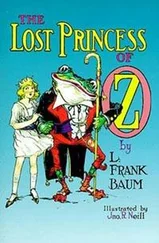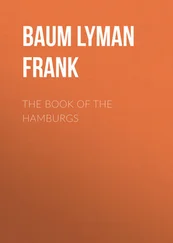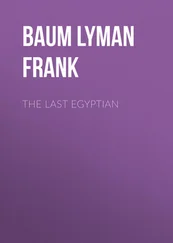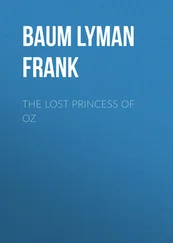L. Baum - The Last Egyptian
Здесь есть возможность читать онлайн «L. Baum - The Last Egyptian» весь текст электронной книги совершенно бесплатно (целиком полную версию без сокращений). В некоторых случаях можно слушать аудио, скачать через торрент в формате fb2 и присутствует краткое содержание. Год выпуска: 2019, Издательство: epubBooks Classics, Жанр: Прочие приключения, на английском языке. Описание произведения, (предисловие) а так же отзывы посетителей доступны на портале библиотеки ЛибКат.
- Название:The Last Egyptian
- Автор:
- Издательство:epubBooks Classics
- Жанр:
- Год:2019
- ISBN:нет данных
- Рейтинг книги:4 / 5. Голосов: 1
-
Избранное:Добавить в избранное
- Отзывы:
-
Ваша оценка:
- 80
- 1
- 2
- 3
- 4
- 5
The Last Egyptian: краткое содержание, описание и аннотация
Предлагаем к чтению аннотацию, описание, краткое содержание или предисловие (зависит от того, что написал сам автор книги «The Last Egyptian»). Если вы не нашли необходимую информацию о книге — напишите в комментариях, мы постараемся отыскать её.
The Last Egyptian — читать онлайн бесплатно полную книгу (весь текст) целиком
Ниже представлен текст книги, разбитый по страницам. Система сохранения места последней прочитанной страницы, позволяет с удобством читать онлайн бесплатно книгу «The Last Egyptian», без необходимости каждый раз заново искать на чём Вы остановились. Поставьте закладку, и сможете в любой момент перейти на страницу, на которой закончили чтение.
Интервал:
Закладка:
“I am here, most royal one!” he announced.
Kāra sat up.
“And my grandmother?” he inquired.
“Here also, my prince. Ah, how natural is Hatatcha! You will be delighted. It is a skilful and almost perfect piece of work, even though I praise my own craft in saying so.”
With these words the dwarf led in the donkey. Upon its back was the form of a swaddled mummy, which was bound to a flat plank to hold it rigidly extended.
“I will show you the face,” continued Sebbet, in an eager tone, as he lifted the mummy and placed it upon the ground.
“Do not trouble yourself,” said Kāra. “I will look upon my grandmother at my leisure. The night is waning. Take your price and go your way.”
He handed the dwarf the emerald, holding the lamp, which he had relighted, while Sebbet examined the stone with great care.
“Yes; it is the great emerald with the cartouche of Ahtka–Rā,” said the embalmer, in a low, grave voice. “Osiris be praised that at last it is my own! Hatatcha was a wise woman, and she kept her word.”
Kāra extinguished the light, but the moon was shining and sent some of its rays through the arch to relieve the gloom.
“Good–night,” said he.
The dwarf stood still, thinking deeply. Finally he said, glancing at the mummy:
“Where will my old friend repose?”
“It is her secret,” returned the prince, brusquely. “She trusted you not to ask questions.”
“And yourself? Will you not wish to be mummified when your course is run?”
Kāra laughed.
“Ah, my Sebbet, are you immortal?” he asked. “Do you expect to live to embalm all the generations? You made a mummy of my great–grandmother and of my grandmother. Your hairs are now white. Be content, and think upon your own future.”
“That has already occupied my mind,” answered the dwarf, quietly. “Farewell, then, prince of a royal line. Your ancestors thought first of the tomb, then of the life preceding it. You are indulging in life, with no thought of the tomb and the resurrection. It is the new order of things, the trend of a civilization that forgets its dead and hides the silent ones in the earth, that they may putrify and decay and become mere dust. Very well; the age is yours, not mine. May Osiris guide thy life, my prince!”
He turned to his donkey and led the ghost–like animal out into the night. Kāra stood still, and in a moment he could hear their footsteps no longer.
Then he secured the mat before the arch and for a second time swung back the stone in the wall. This done, he felt in the dusk for the mummy of Hatatcha, and lifting it in his arms, bore it through the opening and replaced the stone. The body was heavy, and he panted as he paused to light his lamp.
It was nearly an hour before Kāra, weary and perspiring, finally deposited the mummy of his grandmother beside its elaborately constructed case. He then unfastened the straps that bound it to the board, and by exercising great care succeeded in placing the body in its coffin without breaking or injuring it. Next he removed the outer strips of linen that swathed the head until the outlines of Hatatcha’s face showed clearly through its mask of tightly drawn bandages. Then he stood aside, and holding up the lamp, gazed long and earnestly upon the calm features.
“I promised,” he murmured, “here to repeat my oath: That I will show no mercy to any one of Lord Roane’s family; that I will hunt them down, every one, as a tiger hunts his prey, and crush and humble them in the eyes of all men; that not one shall finally escape my vengeance, and that all shall know in the end that it was Hatatcha who destroyed them. So be it. By Āmen–Rā, the Sun–God who gave me being; by Ahtka–Rā, whose blood now courses through my veins; by my hope of peace on earth and in the life to come, I swear that Hatatcha’s will shall be obeyed!”
His voice was cold and even of tone; his face grave, but unmoved. He placed his hand upon the breast of the mummy and repeated the mystic sign he had used at her death–bed. This done, he raised the heavy carved lid of the case and placed it in position.
Next morning Kāra gave Nephthys a kiss and returned across the river on his way to Cairo. The dragoman carried the traveling bag and grumbled at its weight. He was in a bad humor. It is all very well to make money, and Kāra is a veritable mine; but had Tadros realized that Nephthys was so fat and flabby, it would have required much more than a roll of papyrus to induce him to part with her. True, he had managed, while her master was asleep, to stealthily meet the girl and embrace her; but he lacked the satisfaction that exists in proprietorship. One should be careful about selling young women. They are like untried camels—liable to develop unexpected and valuable qualities.
These reflections engrossed the dragoman all the way to Cairo; but there were other things to demand his attention. Prince Kāra announced his intention of taking the next steamer to Naples, and then traveling to Paris and London. He asked Tadros to accompany him.
“But that is impossible!” was the reply. “I am a dragoman of Egypt, the chief of my profession, a guide unequaled for knowledge, intelligence and fidelity in all the land! But take me away from my own country, and what am I? Take me from the poor tourists, and what will become of them?”
“I need you in Europe, to do things in my service that I would not dare propose to anyone else. I believe,” said the prince, coolly, “that you are an unprincipled scoundrel. You lie easily and without hesitation; you rob me cheerfully every day that you are in my employ; you have no conscience and no morality, except that you are afraid of the law. I have studied your character with care, and I have estimated it aright.”
Tadros first looked shame–faced, then humble, then indignant.
“By every god of Egypt,” he cried, earnestly, “I am an honest man!”
“That is proof of my assertion to the contrary,” replied the unmoved Kāra. “Now, I need a scoundrel to assist me, and you are the man of my choice. Continue to fleece me, if you like; I do not mind. But if you serve me faithfully in some delicate matters that will soon require my attention, I will make you the richest dragoman alive, so that Raschid and the Haieks will all turn green with envy. On the other hand, should you choose to betray me, you will not require riches, for the nether world has no commerce.”
Tadros thought it over.
“We are Egyptians,” he said, at last. “Your enemies are equally mine. Very well; command and I will obey. Are you not a prince of my people? And why should I ever wish to betray you?”
“Because wise men sometimes become fools. In your case a lapse from wisdom means death. Others may bribe you with an equal amount of money, but I alone will exact the penalty for betrayal. I think you will remain wise.”
“Ah, that is certain, my prince!” declared Tadros, with conviction.
And so Kāra sailed from Alexandria, taking with him the great diamonds which the Van der Veens had already recut, the wonderful pearls which no eye but his had yet beheld, and the priceless treasures of Ahtka–Rā.
The dragoman followed him, humble and obedient.
Chapter IX
Aneth
Charles Consinor, ninth Earl of Roane, was considerably discouraged at the moment when Luke the butler placed the big blue government envelope upon his table, thoughtfully leaving it at the top of the daily heap of missives from impatient creditors.
During a gay and dissipated life, his lordship had seen the ample fortune left him by his father gradually melt away, until now, in his old age, he found it difficult to secure sufficient funds to enable him to maintain a respectable position in the world. He had been ably assisted in his extravagances by his only son, the Viscount Roger Consinor, who for twenty years past had performed his full share in dissipating the family fortunes.
Читать дальшеИнтервал:
Закладка:
Похожие книги на «The Last Egyptian»
Представляем Вашему вниманию похожие книги на «The Last Egyptian» списком для выбора. Мы отобрали схожую по названию и смыслу литературу в надежде предоставить читателям больше вариантов отыскать новые, интересные, ещё непрочитанные произведения.
Обсуждение, отзывы о книге «The Last Egyptian» и просто собственные мнения читателей. Оставьте ваши комментарии, напишите, что Вы думаете о произведении, его смысле или главных героях. Укажите что конкретно понравилось, а что нет, и почему Вы так считаете.












